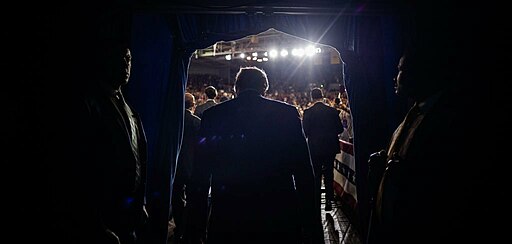
On October 9, Republican presidential hopeful Nikki Haley called for the government she seeks to eventually head to “[f]reeze Iranian access to the $6 billion in Qatari banks and send that money to Israel instead.”
That’s a terrible idea, and garners Haley big points in her quest to win the Tom Knapp Whack-a-Doodle of the Quarter-Decade Award (she previously took the lead with her public John Birch Society style meltdown, in the second GOP presidential primary debate, over TikTok).
The $6 billion she refers to comes from Iranian oil revenues previously stolen by the US government pursuant to its “sanctions” schemes, and returned to the Iranians as part of a “prisoner swap” deal in which the US government released five Iranian hostages, and the money, in return for the release of six American hostages held in Iran.
Note: Yes, hostages. Both governments (and others) routinely abduct and imprison citizens of other countries, then swap them with each other like baseball cards.
Let’s take a moment to ruminate on the likely effect of stealing that $6 billion for a second time after giving it back in return for American hostages.
Will the Iranian government remain willing to part with American hostages quite so easily in the future? As George W. Bush might say, “fool me with disappearing funny money that you stole from me in the first place once, shame on you. Fool me … you can’t get fooled again.”
And what about American hostages in, say, Russia or China or Gaza or anywhere else? Word does get around, you know.
As for giving the re-stolen money to Israel, that country’s government already collects billions of dollars in US taxpayer funded welfare checks every year, allowing it to throw its weight around in ways that periodically and inevitably result in things like its current, very ugly, war with Hamas.
Adding $6 billion of Iranian money to that mix would be throwing gasoline on the Palestine fire while simultaneously rubbing salt in Iran’s wounds.
Haley’s proposal, in summary: Perpetuate the captivity of American hostages and flush the US government’s credibility deeper into the untrustworthiness sewer — if that’s even possible — in order to perpetuate mutual murder in the Middle East.
The whole idea is insanity on a PCP-and-grain-alcohol-cocktail level, and puts letting Nikki Haley anywhere near nuclear launch codes or an unlocked Air Force One cockpit door atop my 2024 List of Evil and Stupid Ideas … for the moment, anyway.
Thomas L. Knapp (Twitter: @thomaslknapp) is director and senior news analyst at the William Lloyd Garrison Center for Libertarian Advocacy Journalism (thegarrisoncenter.org). He lives and works in north central Florida.
PUBLICATION/CITATION HISTORY


